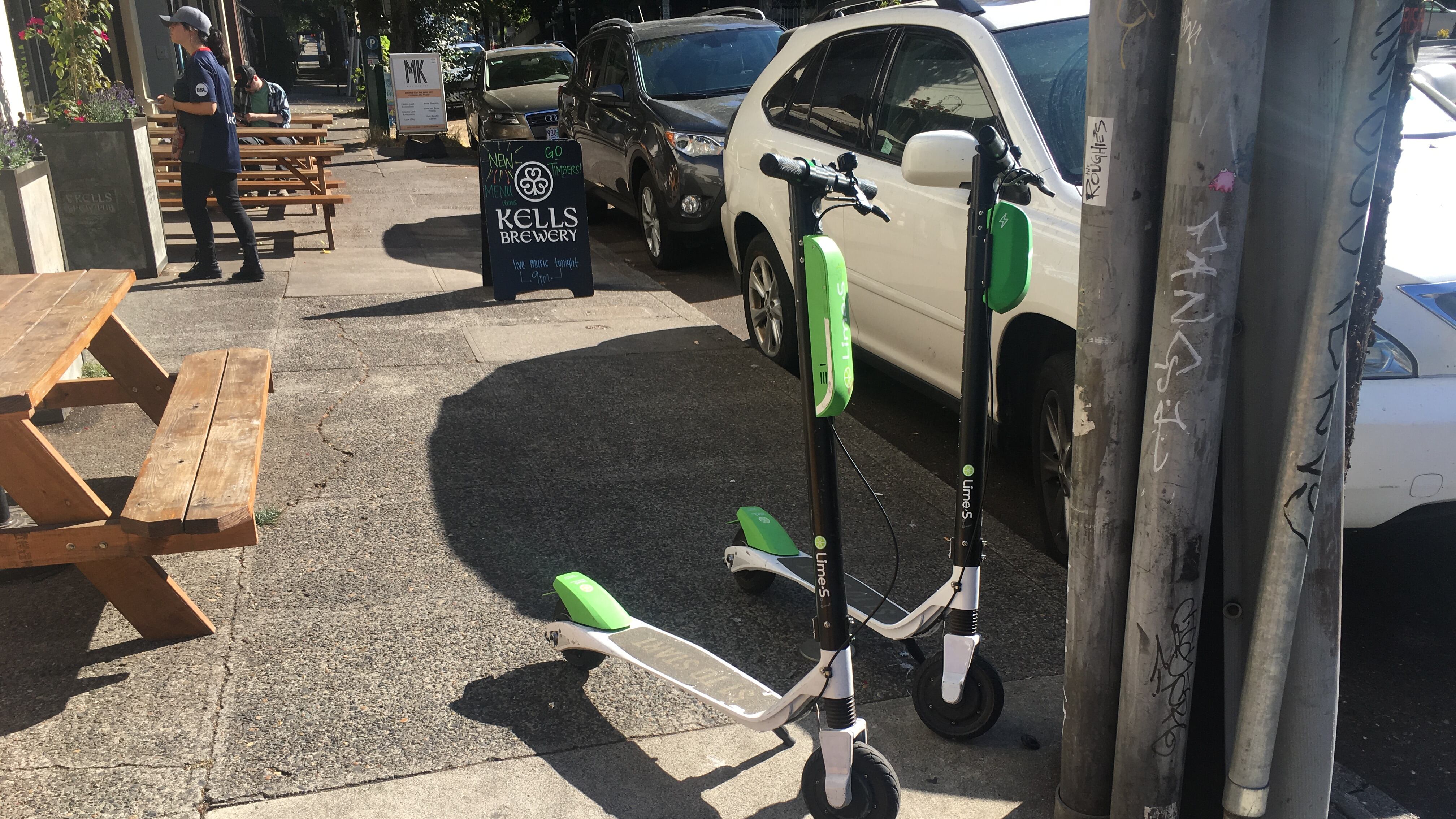Portland advocacy group Disability Rights Oregon isn't happy with the structure of the new e-scooter pilot program.
The city's second scooter trial program started April 26, and this time around the Portland Bureau of Transportation ditched its complaint process, directing people to air grievances with companies directly instead of on a government website.
DRO says the revision allows scooter companies to downplay complaints and shirk responsibility.
"Clearly, if an e-scooter company is taking the complaints and knows those complaints are shielded from the public record, the company may be incentivized to downplay the seriousness of any complaints when they transmit 'minimal' required data to PBOT as part of the pilot," DRO's executive director, Jake Cornett, and staff attorney, Matthew Denney, wrote in a letter to the agency today.
"This would seem to undermine the purpose of the pilot," they continued, "in so far as one goal is to examine potential impacts from e-scooters on the larger community, the rate of complaints, and how they impact people with disabilities' rights to equal sidewalk access."
Earlier this month, PBOT spokesman John Brady told WW that the change in complaint processes is an attempt to "improve response time and put more responsibility onto the companies," and that companies would be audited.
Emily Cooper, DRO's legal director, says that the change in complaint process took the organization by surprise after the city received over 6,000 complaints in four months on its online portal last year.
Related: Meet the Portland Citizens Who Hate Scooters the Most
"This is a city pilot, it's designed to try out and get feedback to figure out what to fix," Cooper says. "We're very concerned that there's no clear, easy, accessible way to hear from constituents."
Cooper adds that PBOT has agreed to meet with DRO. Depending how that meeting goes, the advocacy organization may consider legal action.
"We hope the city continues to modify pilot," she says. "If they fail to take these concerns seriously then, yes, we will be forced to consider litigation. We hope we don't have go there."
In response to DRO's letter today, Brady tells WW in an email: "PBOT shares Disability Rights Oregon's concerns regarding implementing an effective, transparent and accountable complaint process. Their input has been very helpful in shaping the second scooter pilot, and we look forward to continuing the conversation about how we can ensure that scooters meet the needs of all Portlanders."
